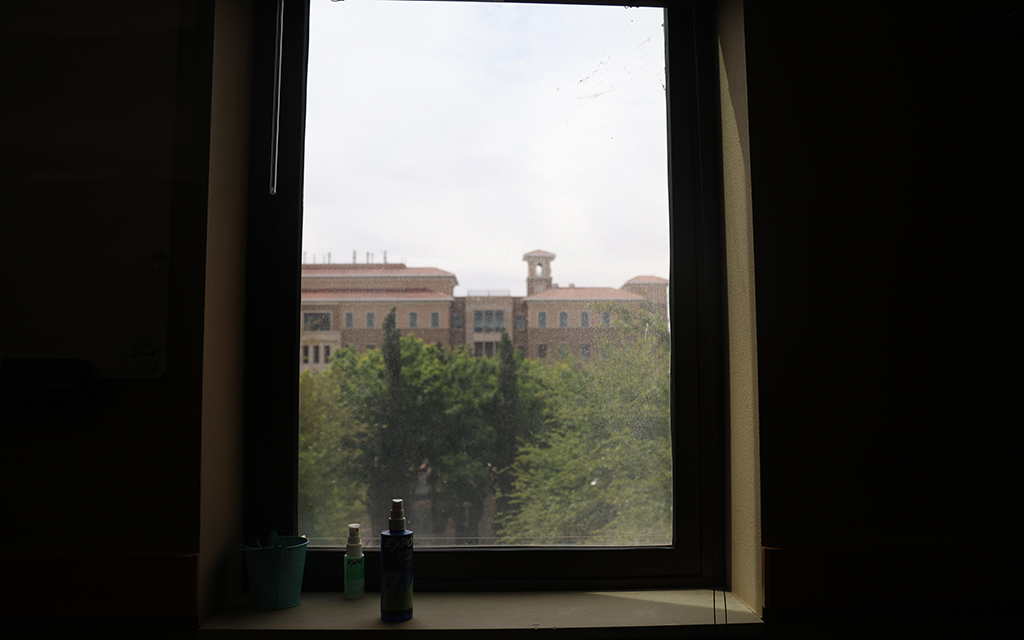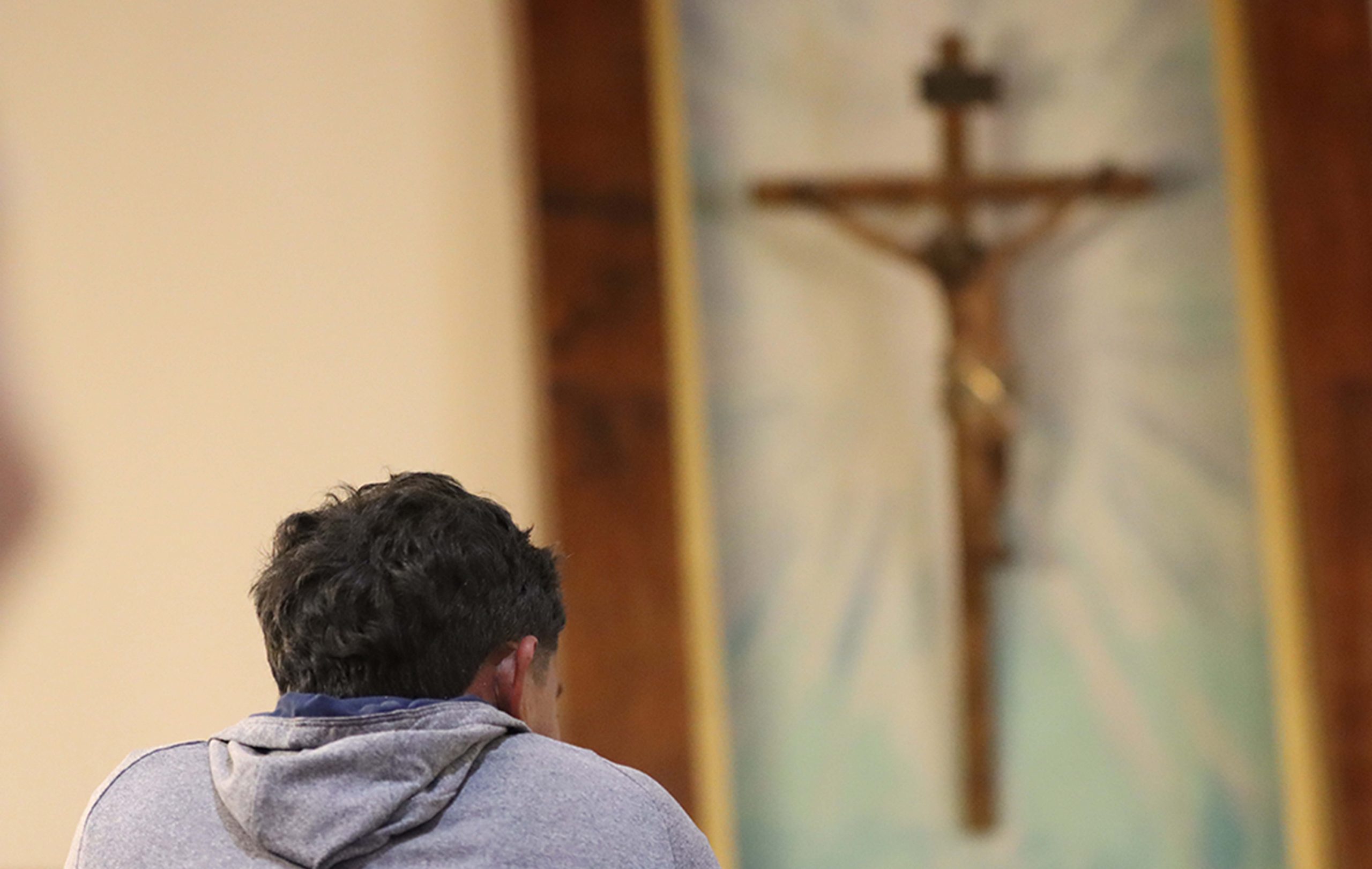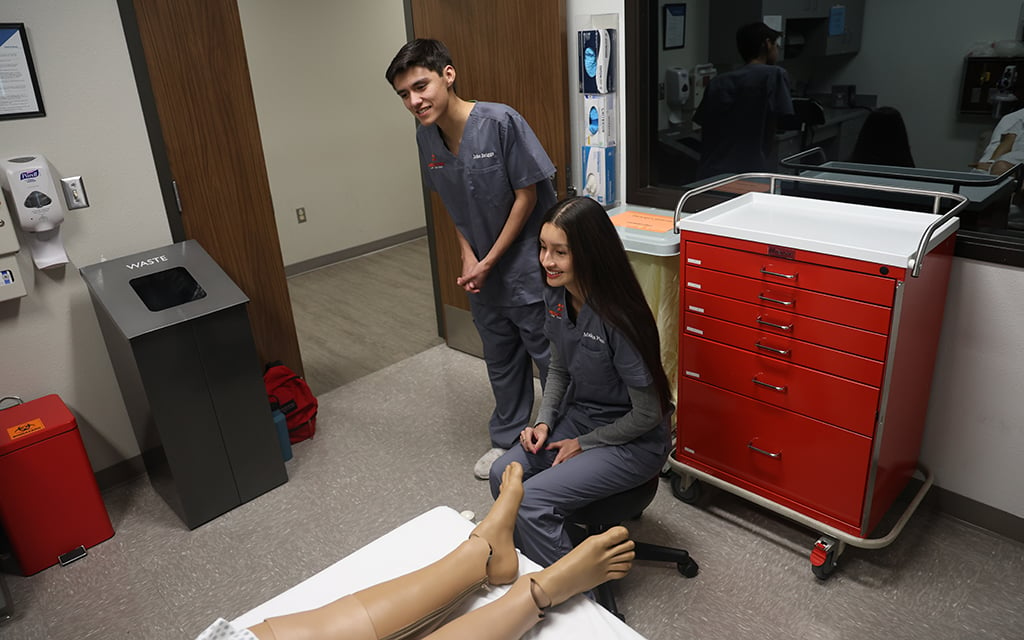
Makena Piñon, right, and Luke Briggs, freshmen at the University of Texas at El Paso, in a medical simulation lab at Texas Tech University Health Sciences Center. (Photo by Jack Orleans/Cronkite News)
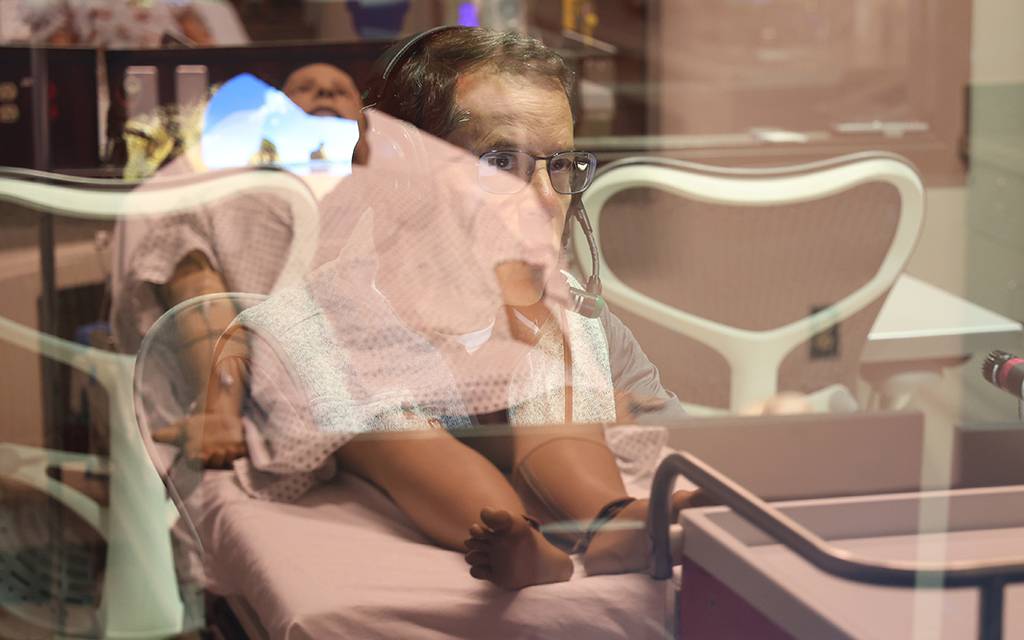
Brian Wilson, education director for the Training and Educational Center for Healthcare Simulation, controls the educational medical simulation from inside a control room. (Photo by Jack Orleans/Cronkite News)

The main campus of Texas Tech University Health Sciences Center in El Paso. (Photo by Jack Orleans/Cronkite News)
EL PASO, Texas – For Makena Piñon, the Texas doctor shortage is not just an issue for the state – it’s a personal issue with repercussions for her health.
The freshman studying biomedical sciences at the University of Texas at El Paso was born with a congenital heart defect, requiring travel outside her hometown to receive treatment.
“It (health care) is much more advanced outside of El Paso,” Piñon said. “I’ve gone to Houston for my treatment, so I think going there and then looking at the health care system or the care here, I realized we need to somehow implement that.”
El Paso is one of the 224 Texas counties currently facing a shortage of health professionals, according to the public policy organization Cicero Institute. It also reported that over 6 million Texas residents live within a health professional shortage area (HPSA), a designation for areas where there are 3,500 or more patients for every provider.
The Association of American Medical Colleges projects a nationwide doctor shortage of up to 86,000 physicians by 2036. According to the Cicero Institute, Texas will be short 20,420 doctors by 2030.
“The Paseo del Norte region (around El Paso) is a lot like the state and the nation, facing a physician shortage and a shortage of specialists,” said Cynthia Perry, the associate dean of admissions at the Paul L. Foster School of Medicine at Texas Tech University Health Sciences Center El Paso. “It’s part of our regular recruiting practice with the school of medicine to heavily weigh and have a preference for students that are from our region and also from border counties.”
Last spring, Perry oversaw the first student cohort for Texas Tech Health El Paso’s MedFuture program – a pipeline program offered to local high school seniors planning to attend UT El Paso who have strong aspirations to go to medical school.
The program offers students mentorship and guidance throughout their undergraduate years to prepare them for medical school admission, including MCAT (Medical College Admission Test) preparation, internship opportunities and volunteer activities.
MedFuture students who complete the program are guaranteed an interview with the Foster School of Medicine, which currently has an acceptance rate of just 4.5%.
High school seniors interested in the MedFuture program must be Texas residents with an SAT or ACT score higher than the state average and must already have been accepted at UTEP.
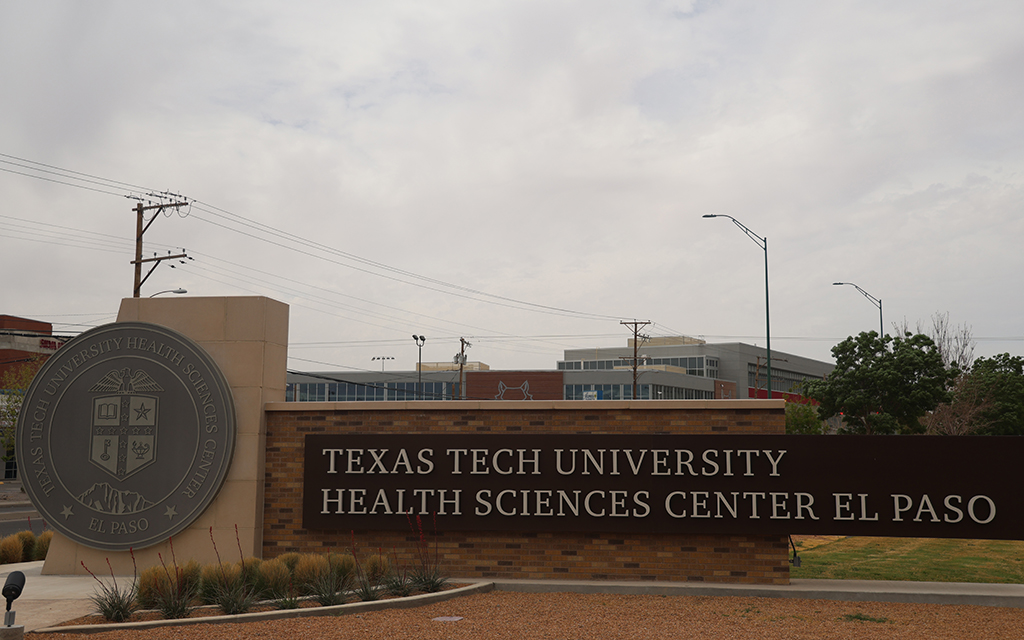
The Texas Tech University Health Sciences Center in El Paso requires students to learn Spanish in order to bridge linguistic gaps and help the majority-Hispanic population gain access to the care they need. (Photo by Jack Orleans/Cronkite News)
“We usually get around 4,000 to 5,000 applications a year, and this is for 125 slots,” Perry said. “We only interview somewhere around 600 candidates, so to get a guaranteed interview really helps you overcome all of those hurdles.”
The program, which took five students last year, has plans to expand to a maximum of 25 students per cohort.
“We wanted to be conscious of being a small-enough group that we could really focus on their individual development,” Perry said. “It’s a big budgetary commitment from both institutions (UTEP and Texas Tech), so we felt like five was a good size.”
Piñon and her friend Luke Briggs were among the few seniors selected for the MedFuture program in 2023. The two first learned about MedFuture when they attended a summer medical camp at Texas Tech the summer before their senior year.
“When I first wanted to be a doctor, I didn’t know there was medical school here,” Briggs said. “I found out about it when I went to this summer camp. …To me, it just makes sense to stay here because this is where I grew up. This is where I go to the doctor. This is where I know people.”
Once students get a slot in the MedFuture program, the health sciences center’s Texas Tech Health resources are available to them throughout their UTEP career to prepare them for medical school.
“We did provide our first cohort with gift cards to the bookstore to help offset that cost,” Perry said. “Another big focus was that we have pretty intensive summer programs planned out for them. We have identified summer research programs that will allow them to get paid to do research during the summer, and that will definitely offset the need for our students to have to work.”
According to the U.S. Census Bureau, El Paso’s poverty rate in 2022 was 18.9%, higher than the state’s average of 14%. Although 81.5% of El Pasoans older than 25 had a high school diploma or higher in 2022, only 27.1% held a bachelor’s degree or had multiple degrees.
For the 2023-2024 academic year, Texas residents pursuing an undergraduate degree at UTEP are expected to pay roughly $19,558, while a first-year medical student at Texas Tech Health is estimated to pay $22,378.
“I’m a first-generation student in my family,” Piñon said. “No one in my immediate family has gone to college, or finished college, at least. But being in this program, I mean, it offers so many advantages that I didn’t think I’d be able to have.”
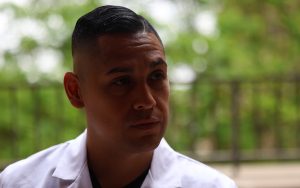
Dr. Jesus Guzman, a gastroenterology fellow, remembers the struggles he went through in pursuing a medical education. (Photo by Jack Orleans/Cronkite News)
Dr. Jesus Guzman, a gastroenterology fellow, said he used to think that doctors only came from long family lines with educated backgrounds.
“I just didn’t think I could do it,” Guzman said. “ I grew up in a low-income community. My mom didn’t finish high school. She got her education in Juarez and finished up to the seventh grade. She just knew school was important and so she always pushed me towards it.”
Guzman, who graduated from UTEP with an accounting degree, never dreamed of pursuing medicine like Briggs or Piñon, that is, until he witnessed a white-coat ceremony in 2014.
“I was like, ‘I don’t know how, but I have to do this,’” Guzman said. “I had a lot of bumps as far as trying to figure out how to get into medical school, how am I going to pay for medical school, things like that.”
Guzman said he is very familiar with the impact a doctor shortage can have on a community, having experienced it firsthand.
“We (my family and I) all went through those issues,” Guzman said. “First of all, it’s already difficult when you don’t have insurance. It’s either you pay for insurance or you pay for your meal. That already gives you limited (health care) access.”
Although 45.2% of Texas medical residents choose to practice out of state, leaving El Paso never crossed Guzman’s mind.
“When I was at the white-coat ceremony, it was something that they talked about,” Guzman said. “They want to make an impact on the community, like, this was the purpose of the medical school.”
As physician shortages persist, finding bilingual doctors in predominantly Spanish-speaking populations becomes incredibly difficult. El Paso has a Hispanic population of 81.6%, and 67% of city residents speak a language other than English at home, but only 11.3% of active physicians in Texas are Hispanic.
Texas Tech Health El Paso is one of the only schools that requires all medical and dental students to participate in its Spanish language program during their four years.
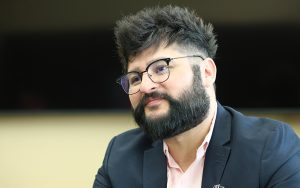
Gilberto Garcia, lead instructor in the Spanish language program at Texas Tech University Health Sciences Center in El Paso. (Photo by Jack Orleans/Cronkite News)
“We not only teach the vocabulary, but our main purpose is to provide instruction so that future providers can conduct the clinical interview with their patients,” said Gilberto Garcia, lead instructor in the Spanish language program. “It’s a combination between conversation skills and, you know, medical terminology. We’re also taking into account the culture of the area.”
Students must complete a placement exam to be placed in beginner, intermediate or advanced Spanish classes. Both medical and dental students are required to attend language classes one hour per week for the first two years.
“The main purpose is to work on these linguistic gaps that we have between patients and providers,” Garcia said.
Guzman went through the program and said being able to communicate in Spanish is crucial in providing the best care possible.
“There is already a lack of education when it comes to understanding medical knowledge for some people,” Guzman said. “Imagine you’re trying to explain something that’s complex to a patient that they’re going to have to manage themselves. How are you going to communicate that message and translate it?”

